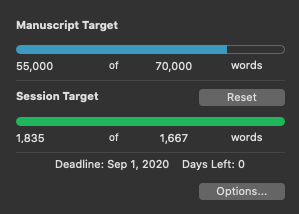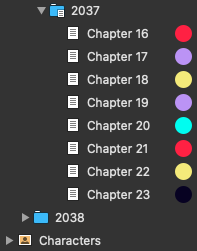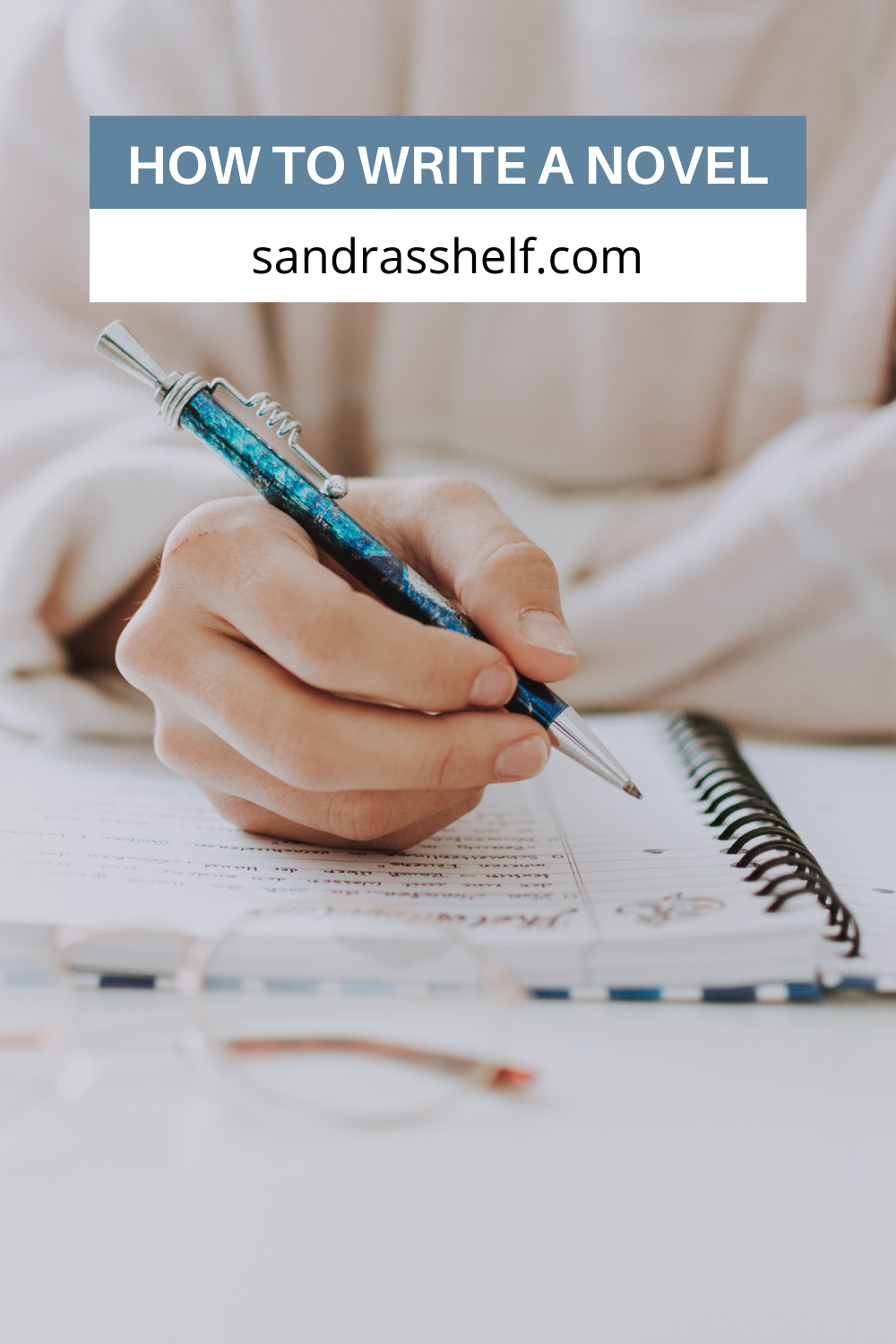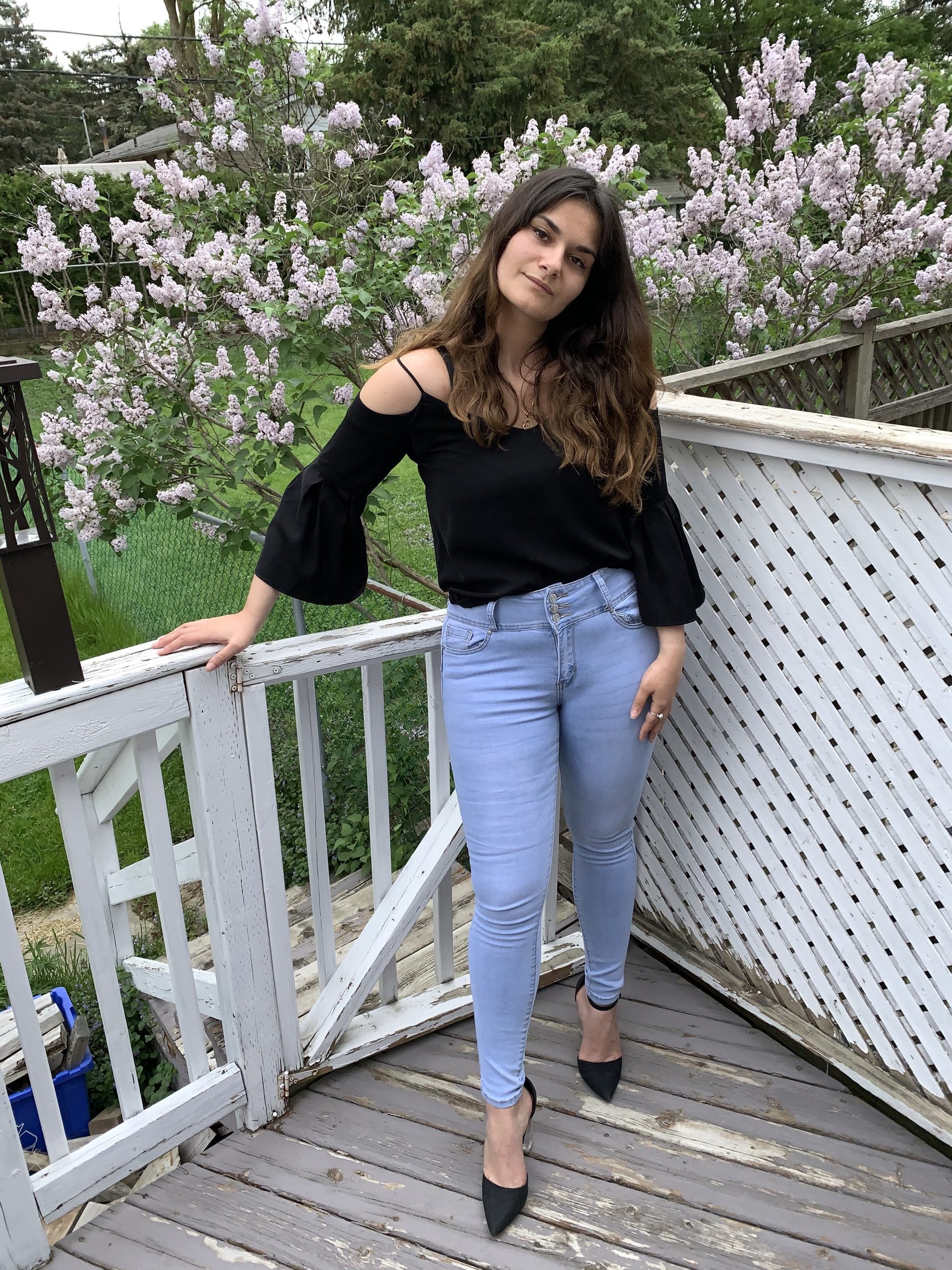This post may contain affiliate links, which means I’ll receive a commission if you purchase through my links, at no extra cost to you. Please read full disclosure for more information.

This is part two of a two part blog post but you can read this blog post on its own.
This post highlights my 10 top tips (+ a bonus tip) on how to write a novel in 30 days.
If you’re interested in learning how to win the NaNoWriMo (National Novel Writing Month) challenge, you can read the first blog post in this series. Click here to be redirected to the first post.
For this post, we will assume that the minimum word count for writing a novel in 30 days is 50 000 words.
Tip #1 Have a Survival Kit
First and foremost this is my all time favorite tip. It gets you in the mood to write. And it prepares you for the writing marathon days. Hey, don’t scowl at me. This truly is a mental marathon and you need to be ready.
Depending on where you live the month of November (in which the National Novel Writing Month takes place) can be freakishly COLD.
I live in Canada and let me tell you in November, unless I’m fully equipped, I am not writing.
Here is my Survival Kit:
- Pens (Muji pens are so smooth – they make you want to write)
- A notebook (Moleskines are my favourite, lots of writers can agree on this)
- Dark chocolate treats
- Copious amount of coffee
- Scented candles
- Fingerless gloves
- Fuzzy warm reading socks
- Knitted sweaters
- “On Writing” book by Stephen King
- The NaNoWriMo book “No Plot? No Problem!” by founder Chris Baty
- USB key (Back up your work or face the dread of losing files)
- SCRIVENER writing program aka the best writing software ever
- My one true love: my MacBook Pro
This is a highly important writing survival kit for me, especially if I am writing a novel in 30 days.
“On Writing” by Stephen King and the NaNoWriMo book “No Plot? No Problem!” by Chris Baty are the two writing books that are always a must at my desk when I am writing.
I also highly recommend you to have a pocket size notebook at hand. Because when ideas come to you, you will be grateful to be able to write down quickly whatever piece of dialogue, idea, thought comes to mind. By the time you might open your laptop and punch in your password and/or open a document, you risk losing the idea. Moleskines are a great and reliable brand for notebooks.
Let’s Talk Tech
But now let’s talk tech for a moment.
Writing in the 21st century is not at all what it used to be in the century preceding us. Besides the negative impacts of the internet and digital devices, we are beyond lucky to have tech tools to make writing much easier and accessible to us. It fills me with inner-peace to know that I can write on the go at any moment of the day. I am also at peace with the fact that I can always save my work.
1. USB Backups
(Please have your USB always handy on the month of your novel drafting.)
I strictly use Sandisk and Lexar USB keys. And they’re both always with me.
I kid you not, I have a separate USB just for the month I draft 50 000 words. And at the end of the week, that project goes with my other projects on a separate USB. And then after that, on a hard drive.
You get the drill.
Back up your work.
2. Portable Device
Having a portable laptop permits you to bring your work files with you on the go or in separate locations of the house. I absolutely can not live a day without my Mac because I write for a living. If I’m not creating for fun, I’m writing blog posts and emails daily on top of that.
Back in university, I would get my NaNo word count in on my hour and a half long bus commute thanks to my MacBook.
If you need to write that many words a day, your best bet is to have a portable device on the go to get in words whenever and wherever.
(I use ‘Pages’ for blog posts – I know its outdated, Microsoft Word for essays, and Scrivener for novel, scriptwriting, and book formatting/compiling.)
3. Scrivener Writing Software
My godsend is Scrivener.
I absolutely swear by the writing software.
I’ve been using Scrivener since my first NaNo back in 2014 and I’ve never looked back since.
Some of the features include: adding templates regarding settings, webpages, and character cheats. It also automatically saves all of your progress in your project. You don’t have to worry about constantly pressing the save button. It automatically does it for you.
Plus, you receive a notification when you reach your session target. If you’re writing 50 000 words a month and set your daily sessions at 1667 words – you can see both progress daily and manuscript wise.
Like this:

There is a name generator if you’re ever stuck naming people. My favorite feature is the cork-board organization as well as the color coding tag for my chapters. See the image of the character color coded chapter organization that I have for my multiple point of view novel:

Scrivener is a beautiful program and very accessible. I have convinced and converted so many of my friends to use it.
Scrivener is one of the most affordable writing softwares out there with a one time purchase that is less than 70$ CAN. Plus, it is even cheaper if you’re based in the USA. I believe it would be less than $50 USD. Since it is also sold on the App Store as well as on their official Literature & Latte site, Scrivener is sold internationally.
The best part is that you can start a month of free trial!
Additionally, here’s a pro-tip: if you win NaNoWriMo they normally give you a winner discount (up to 50% of an already cheap product) to purchase Scrivener. But they might change this in the future.
However, don’t fret because Scrivener is affordable in general. You can get it for as low as 19.99$ (CAN) on your iOS devices or pay 67$ (CAN) for your Mac or PC.
Scrivener gives you a free trial irregardless.
Follow this link for further instructions in which you can figure how to download your free trial. After your free trial (or even before its expiry), you can decide if you want to pay the one time fee or stop using the software. Once you are ready to purchase, you will receive a license key to enter for your software and Voilà!
Tip #2 Create a Routine
My second tip regards creating a routine. If you’ve read any of my previous posts, you would know I am dead set on scheduling and time blocking as much as I can.
When you block time for working on your novel, you are treating it as a priority. If you treat your novel as work; you will get it done. (Also: treating it as work holds you accountable. But it doesn’t mean its not fun work!) Having a routine for your writing, proves to you and others in your surrounding, that you are committed to writing your novel.
Designated Writing Time
First, you can have a designated writing time.
Or you can have multiple possible time slots in a day where you dedicate yourself to getting couple of words in at each time slot.
Both methods generally work for me.
If I am breaking up my writing, then, I will leave my writing session at the middle of the sentence.
Why do I do this?
Because I obviously know how the sentence ends.
And so when I come back at a later time in the day I can complete that sentence (or that scene) and chances are I will complete it. And it will give me more momentum because I am not thinking as hard as if I were starting a whole new chapter or scene in my novel.
Hard Writing Days
Additionally, it is worth noting that for some people it is harder to start a novel. At the beginning, it may require more hours to write less amount of words but not so much onwards. After a few days, you may be able to write faster in a shorter amount of time.
Yet, the opposite is true too. You can start strong but during the second or third week you can feel sluggish and drained.
That’s why you should profit from good writing days and get as much words in as you can.
Month at a Glance
Furthermore, you should consider looking at your month at a glance to prepare for events, holidays, or obligations, such as work meetings, family gatherings, etc.
You don’t want to be surprised about – or cancel – events that were long planned beforehand.
Therefore, you should make a buffer for yourself. If you can write more on some days or at the beginning of your project then by all means do so. You will thank yourself later on those days where the writing seems stale or when life gets in the way. There are some days that no amount of planning and scheduling could save your day’s schedule.
Account for Busy Days
Pick a day of the week that you are a bit freer to have more writing sprints. You can have a marathon-like day and set up an extra hour in or an extra 1000 words. This will boost your word count but also your productivity in general.
It also creates that word count safety net.
Better to be ahead than be constantly catching up.
Either way, persevere and don’t discourage yourself. Writing, like everything else in life, is about consistency and dedicating your time and energy without allowing for excuses to hold you back.
Wake up Earlier
If you’re a night owl or simply not a morning person, you might hate this tip. You don’t necessarily have to wake up at 5 am. By waking up earlier, I am simply suggesting to wake a half an hour – up to an hour – earlier than you normally would.
Furthermore, try to start writing early in the morning. I struggle with this one but I know it helps when I do get around doing it. But writing first thing in the morning even simply a 10-20 min sprint can help your productivity.
In this matter, try to write before you reach for your phone or social media or before you even make your coffee. Trust me, your coffee tastes 10x better after that morning writing session. And this is me, a caffeine addict writing this down for you.
Another benefit is that it boosts your productivity to know you did something before the end of the first hour of your new day. When you come back to your project that same day, you are already gratified with a higher word count.
Tip #3 Limit Distractions
Space
One way of limiting distractions is to have an entirely separate room or area designated for you to work. You can tell family or friends not to reach you when you’re in that space whether it be physical and/or digital contacting.
If you can’t have a space at home, there gives study rooms that you can book for up to 2 hours in your local library or university library. Some bookstores (like Chapters Indigo in Canada) have their own quiet rooms in which you can work in.
Furthermore, if you have a designated work space or desk space, make sure you remove anything on it that could distract you. Sometimes I need to clear my desk because there are pens and notebooks and books all over. The mess distracts me. I make sure to keep the space clear and distraction free. Anything that can catch my eye for too long – including my phone – has to go.
Digital and Social Blocking
Back in the day, the number one enemy to the common writer would be correspondences. Hence, having to respond to the copious amount of letters.
Nowadays, it is emails and social media notifications. You can choose to disable them (I do this for the whole year long writing or not) but this option does not suit everyone. Or to simply activate silent mode or do not disturb on your devices.
Instead, you can put your devices away when you are writing.
If not, there exists time blocking apps on for your phone like the Screen time for iPhone. I just discovered that the Screen Time limit on my iPhone also syncs with my Mac and other Apple products.
Additionally, there are time blocking websites or extensions for your computer. There are free ones available online if you do a quick search on Google.
If you are feeling really dedicated, you can sign out of all of our apps. But make sure your emails and passwords are not automatically saved. This will help discourage you to keep signing back in unconsciously. A lot of people use this method especially for Twitter and Instagram where the distracted mind wanders most often.
Tip #4 Determine Your Plotting Style
Outline
Have an outline if it helps you. Some people have bullet points or just the ending in mind. Others only have one main plot point and/or two subplots in mind. There is no right way to write nor to plot. That’s the beauty of creative fiction.
Novel writing has become a less strict form of writing. It mostly requires an average minimum of 50 000 words to be considered as one.
However, a loose plot outline may help you. My current novel has a loose outline of hypothetical scenes that could happen in the next 30 or so chapters I created.
Often times, I diverge from the outline. I add extra scenes that seem necessary to the story while I am writing my novel.
You can decide to be as loose or as structured as you want. Whatever works for you. For me personally, I like a combination of the two.
Planner vs. Pantser
In the writing world there are two terms employed to determine your plotting style: planner vs pantser.
The planners plan meticulously before they write. Whereas the pantser are said to write “by the seat of their pants.” They just write and figure things out as they go.
I am what my contemporary writers call a “plantser” which is a combination of both. This enables me to be creative and not know everything as I write. But, I also to know where I’m starting and ending and some connecting points in between.
Tip #5 Write Everything Down
Write everything down.
Yes everything.
This is a very simple and straightforward tip. But somehow it is the most forgotten.
You can eliminate the superfluous details later after you finish drafting. But in your notebook its good to see how your story changes through time.
It is helpful to track the motivations of your characters or to be reminded of their main motives. When you’re 3/4 into your story and losing steam or motive for the next few scenes, you can always refer to your notes.
Tip #6 Try to Write Every Day
First of all, writing every day even a small amount is better than nothing.
If you skip a day you’re more likely to keep skipping days.
This is simple psychology.
Your brain alerts you that writing is no longer a priority because you’ve already missed a whole day. Especially when you first start writing your novel.
Either you fight through this mentality or you’ll always succumb to it and never write consistently.
Sometimes when you push yourself to sit at your document or notebook for 10-15 minutes, chances are you will end up writing something. When you do start and/or push yourself to write 5-10minutes of nonsense you slowly enter into the flow state.
Remember Newton’s law?
Objects in motion stay in motion while objects at rest stay at rest. Unless the force (in motion or at rest) is acted upon by an unbalanced force.
That force is you when you breakthrough the first few minutes of your resistance to writing.
Once you do, then you’re more likely to keep going and pushing through and making breakthroughs with your novel. You gain momentum and the words are starting to show on the page.
See, its simple physics too.
You can do it.
You can write your novel in 30 days.
I believe in you!
Tip #7 Have a Visual Reminder
Calendar
I love using Calendars. Especially if you used the second tip then you can visually see all the events coming up. You can view the blocks of time and days that are free.
I created FREE calendars for you to use in which it shows you how many total words you would need to be at if you wanted to write 50 000 words in 30 days:
Track your Progress
Having a visual calendar or spreadsheet allows you to track your progress. You get to see how far you’ve come and how far you’ve got to go. Completing your word count goal every day is immensely gratifying.
And displaying it is a great reminder of your achievements no matter how small.
Tip #8 Make Writing Fun
Although writing is a serious task and you can treat it like work, don’t forget to have shameless fun. Have creative abandon and abundance. Let yourself go. Make the writing fun. It is already challenging to write that many words a day, might as well enjoy doing it.
Create a Playlist
Have a writing playlist if you’re in the habit of listening to music while you write. There are a ton of writing playlists online for free already ready for you to listen to. There are writing playlists on YouTube, Spotify, and Soundcloud to name a few.
Create a Pinterest Board
Make a visual Pinterest board. You can make boards on related themes or settings, or even on your characters outfit. These boards can be really pleasant to the eyes.
Additionally, Pinterest is also a great search engine. You can search for inspirational quotes or novels similar to yours. I have been obsessed with everything “Dark Academia” related on Pinterest. This includes; books, movies, setting, outfits, quotes by long deceased poets, and even architectural buildings. All of this helps me create the atmosphere of my story and it inspires me to keep writing.
It makes the writing visual and fun.
Post Online
Post your progress on social media! Tweet it! Livestream it! Make a story post!
Whatever that makes you happy and excited to write. I like to post my daily writing updates on a personal Tumblr because it helps me keep track and interact/follow other writers. In these writing updates, I also personalize them by adding my feelings and progress of the novel I’m drafting. Some days it’s less about the word count and more about where the story is going. Sometimes it just feels good to have that extensively long chapter finally done.
Create a Reward System
Having a reward system or an incentive program for yourself is very helpful. I believe it is almost as helpful as having a writing survival kit as we have seen in Tip #1.
The thing about rewards is that they can be very small and insignificant to others. But to you these daily or weekly rewards feel well deserved.
In a month where I am trying to write a novel – or 50 000 words – I will only allow myself certain things after I finish getting my word count in. This further motivates me to write. I won’t allow myself to watch YouTube videos or go on Instagram until I have written a few words down. I won’t watch a new episode of my favorite show until I am done writing for the day.
I keep the small rewards for daily accomplishments, such as reading a chapter of a book, having a piece of dark chocolate, etc. If I am feeling super happy after a productive writing day, I might even have a glass of wine.
Furthermore, I recommend monetary “bigger” rewards when reaching bigger milestones. If you are already in the habit of rewarding yourself, try to restrict yourself that month you are trying to write your novel. Because then you have a greater incentive and you will appreciate that reward even more.
Say you write 50 000 words in a month. Your bigger reward levels can be at every 10k and consequently your biggest reward can be at the 50k mark.
My rewards look something like this:
- At 10k: A bottle of wine or a box of dark chocolate. A food related product that’s cheap and will help me keep going.
- At 20k: Pens or a fountain pen I’ve been eyeing
- At 30k: A notebook
- At 40k: A book (most times it is a book on writing)
- At 50k: Something bigger like the Scrivener writing program. The first time I wrote a novel in 30 days i bought myself Scrivener. You can even buy yourself a bookshelf! (I have a lot of books.)
In this matter, I have a pyramid level of rewards.
As of late, I am used to writing a novel in a short period of time so I will just give myself a big reward at 25k and a bigger reward at 50k. Or I’ll simply allow myself to buy more books that month. And trust me, I buy too many books every month to begin with.
Tip #9 Don’t Edit
Don’t edit!
This tip goes hand in hand with the tip to write everything down. When you’re drafting a whole novel in a month, you should go wild.
Go crazy! Go off in tangents.
Don’t get stuck editing. Put your inner editor on snooze.
Oppositely, it’s okay not to go into specifics or offer too many details on your first draft. You can add more later on after your first draft. (This is also considered editing. So wait until you finish writing the first draft before adding descriptions if it will slow down your writing.)
Additionally, if there are things you are uncertain of or passages you want to expand, you can simply write yourself a note in your document or in your notebook. I suffer from a lack of physical and spatial descriptions in my first draft. Often I will write freely until I get stuck on adding descriptions.
So what I do instead is the following, I litter my novel with these tags:
[ADD DESCRIPTIONS]
[DESCRIBE MORE]
[RESEARCH DESCRIPTION]
I add these tags at least once per chapter because a) I don’t want to forget and b) on later drafts I want to describe more and expand on my writing weaknesses.
All of this to say that no first draft is perfect. Absolutely none. Even after you finish several drafts and rounds of editing, your editor (if you wish to pursue traditional publishing) will suggest you to do some structural or general writing edits.
Accept imperfections and allow yourself to write freely.
The first step is have something to work with and in order to do that, you need to write your novel finish.
Tip #10 Seek Writing Inspiration
Form or Join Writing Communities
Every year, I convince at least one friend to do NaNoWriMo with me. (Don’t know what NaNoWriMo is? You can read the first part of this blog post here.)
We challenge each other to write a novel in 30 days and we bounce ideas off each other. Plus, we get to stay inspired and motivate each other besides being accountability buddies. We sometimes do our own writing sprints.
On the NaNoWriMo website, you can add buddies and track their progress. You can even find published writers that are partaking in the challenge.
Furthermore, there are live writing sprints and live shows, presented respectively by the NaNoWriMo Twitter and YouTube team every November.
Plus, you can join your writing community in your nearest city on the NaNoWriMo site. These organized community will normally come together for free and for monetized events near you every November. I know that the Toronto, Canada NaNoWriMo organizers partake in writing in the TTC (Toronto Transit Commission) during the month of November.
Plus, there are many other writing communities. There is the Reedsy team that have helpful tips and tricks on their blog and YouTube channel. They also host live shows with many professionals in the writing field, such as literary agents and established writers.
Consult Free Writing Resources
As I mentioned, you can consult Reedsy for many free online writing resources. NaNoWriMo also has open writing forums in which you can ask others like you for advice and help.
NaNoWriMo also has a whole section dedicated to “Pep Talks” from highly acclaimed authors. It is so inspiring and exciting to read. Especially when you see the names of your favorite authors. You just know they took time out of their busy author day to write their personal tips and journey just to provide free additional support to you. (I will read anything John Green writes. Especially if it’s a free pep talk.)
You can also consult blog posts (hey look you are already doing this! good job!) I even go to my favorite authors website and see if they have a blog section. Then I creepily proceed reading their blog posts or writing tips. I’ll follow them on Instagram, Twitter, and YouTube. You know the drill.
Consult your Favorite Books and Authors
For more inspiration you can consult your favorite works and favorite authors. You can reread a few chapters of your favorite book.
Additionally, if I am writing a dystopian book, I will read as many dystopian books as I can. This applies to any genre I decide to write in.
Similarly, you can consult books on writing. There are thousands of books on writing. They range from technical to general to personal tips. Some of the most well known writers have written books on the craft of writing or creating.
Two of my many all time favourites writing books are “On Writing” by Stephen King and “Big Magic” by Elizabeth Gilbert.
Another thing I do… (I am putting this out there if you’ve already exhausted all the tips and sources.) I will do the crazy step of reading everything that is on my favorite writer’s list. Lately, I have been reading every book and poetry book recommended by Stephanie Danler on her Instagram page. She posts her favorite poets almost daily.
Don’t know who Stephanie Danler is? She is the author of the novel “Sweetbitter” that has been adapted into a two season show of the same name on Starz. She also wrote her memoir called “Stray.” I want to see what my favourite writers read because reading is also a big part of the learning process of being a good writer.
Have a Wall of Inspiring Writing Quotes
You can display your favorite writing and motivational quotes on your wall, screensaver, fridge – whatever you decide.
Some of mine include:
“The first draft is just you telling yourself the story.”
― Terry Pratchett
“You can always edit a bad page. You can’t edit a blank page.”
― Jodi Picoult
“The worst enemy to creativity is self-doubt.”
― Sylvia Plath
“If there’s a book that you want to read, but it hasn’t been written yet, then you must write it.”
― Toni Morrison
Fill up the form below to download your FREE posters of these inspirational writing quotes for your inspiration wall!
Tip #11 If You’re Stuck; Change it Up
This is the final tip. It is a supplementary tip for when you are really stuck and unmotivated. This will help you to keep pushing when all else fails and you don’t think you can write your novel finish.
Ask Questions
Ask yourself a set of questions about the backstory of your characters.
Create some new conflict that touches on the characters insecurities or weaknesses by asking yourself how would they react and surpass adversity.
My favorite asks are the “what if” questions:
My ideas always start with “what if…” in my head. What if the world operated this way instead of that way? What if I wrote a character who overcomes a struggle similar to my own but in a very different way?
What if I wrote a character with the same traditions I’ve grown up with?
The last question is important for representation. When you don’t see yourself represented in the books you read, you can write that book you’ve always wanted into existence. The portrayal you’ve always wanted to see can finally come to life. That can be motivation enough.
Brainstorm and Outline
Keep brainstorming when you’re stuck or simply write every single thing down, something will spark eventually. Even if it is not good, you can always change things in the editing process of your novel after you reach 50 000 words.
Read
When you can’t seem to write or even outline or even, brainstorm: turn to reading.
Remember Stephen King’s wise advice:
“If you don’t have time to read, you don’t have the time (or the tools) to write. Simple as that.”
― Stephen King
Read similar books to your genre. And/or read something totally unrelated. You might even find your brain trying to draw a connection to an unrelated topic or genre that you’re reading in. That’s your creative brain manifesting not-so-subtly into your daily life.
Don’t shun it, embrace it.
Stephen King is a master at taking mundane topics and twisting it on its head. He is also known for writing the most ludicrous ideas out into full length novels.
You can too.
Trust your process.
Change Scenery
Go for a walk or go see new sights.
When you explore and expand your horizon, it will allow your creative juices to flow.
Back in the day, it was ascribed to writers to travel for inspiration. (Can you tell I’ve read a lot of books on writing and writers? Guilty!) Of course you don’t have to travel, just a walk around your block can do. You can explore a local park or trail to spice things up.
You can even try changing your writing space. If you write in your office, switch it up to the living room in the morning or nighttime when no one is there. Unless you’re a masochist like me, then write in the living room during the evening while dealing with the hustle and bustle of others around you.
If the weather permits, go outside and write. Sit on the porch or the backyard.
One of my all time favorite places to write is in my dad’s car. I’m not kidding. I am writing to you right now in the passenger seat of his truck. As I mentioned before, I used to write my novels and essays during my commute to university. And it worked. Transit oddly works for me.
You can also go to cafés or to the library. This one is not for everyone. One place can get loud while the other can be too quiet. In the past, I’ve been to both many times when I wanted to really switch things up from my routine. Some people like to write in bed, I am guilty of this too. I write in bed when I want to write things on the very last hours of the day before crashing into oblivion.
But I do the best writing in chaos and yes, I admit once more; in transit.
You don’t know what works for you unless you try.
Go forth and explore.
Write.
Conclusion
Those were my 10 top tips (+ a bonus tip) on how to write a novel in 30 days.
Remember: as a rule of thumb, I consider a novel around 50 000 words using the NaNoWriMo November writing challenge guideline.
Not sure what NaNoWriMo is? You can read the first part of this two part blog post here.
Here are my questions for you:
What is your #1 item on your writing survival kit?
What is your favorite writing software?
What is your favorite writing tip?
Have you ever joined NaNoWriMo or any similar challenge?
What writing related post would you like to see in the future?
Like this post? Save Pin for later!








Hi! This is my first comment here so I just wanted to give a quick shout out and tell you I genuinely enjoy reading through your blog posts. Can you suggest any other blogs/websites/forums that go over the same subjects? Thanks for your time! Junie Christopher Adrianna